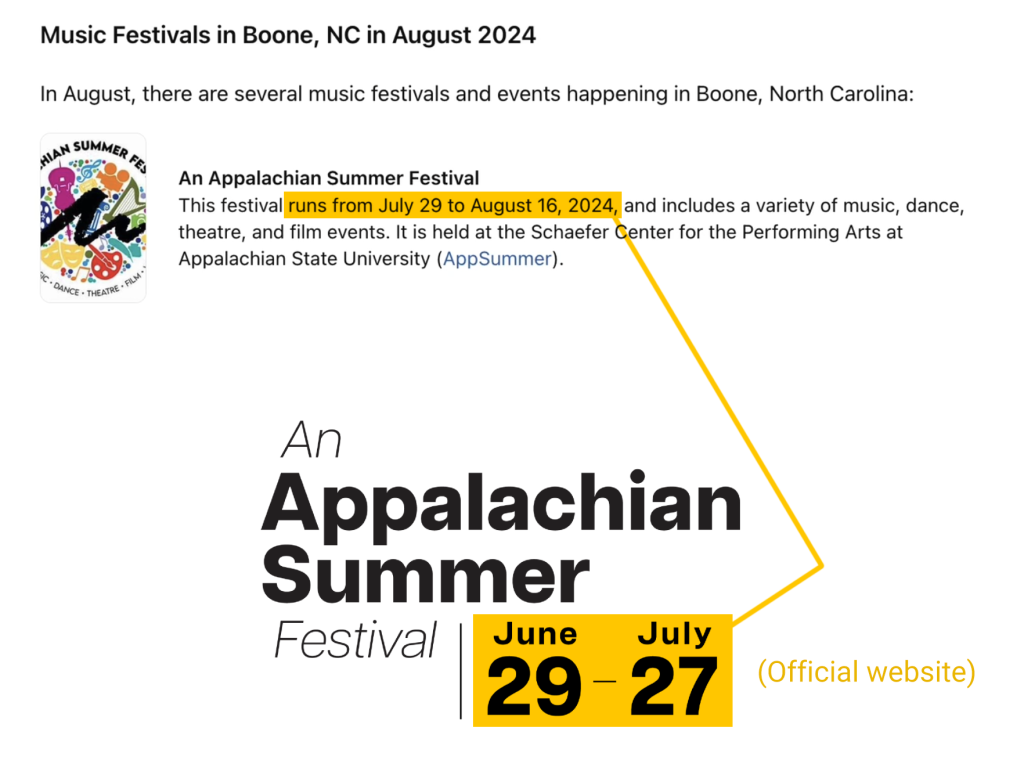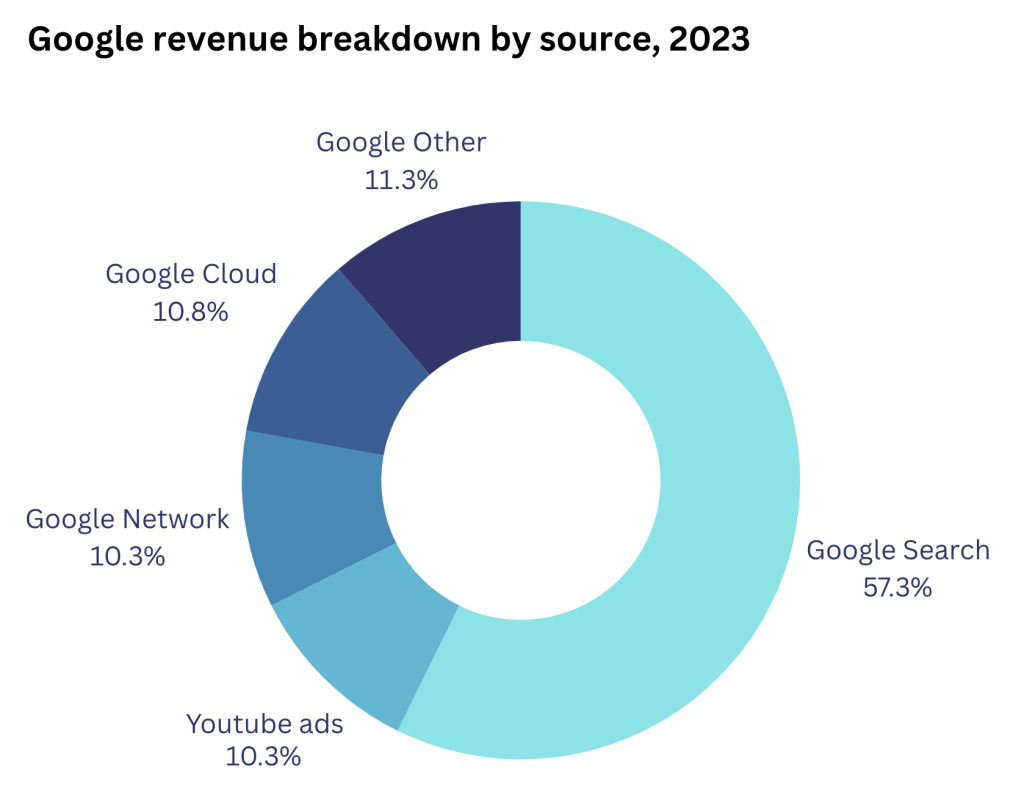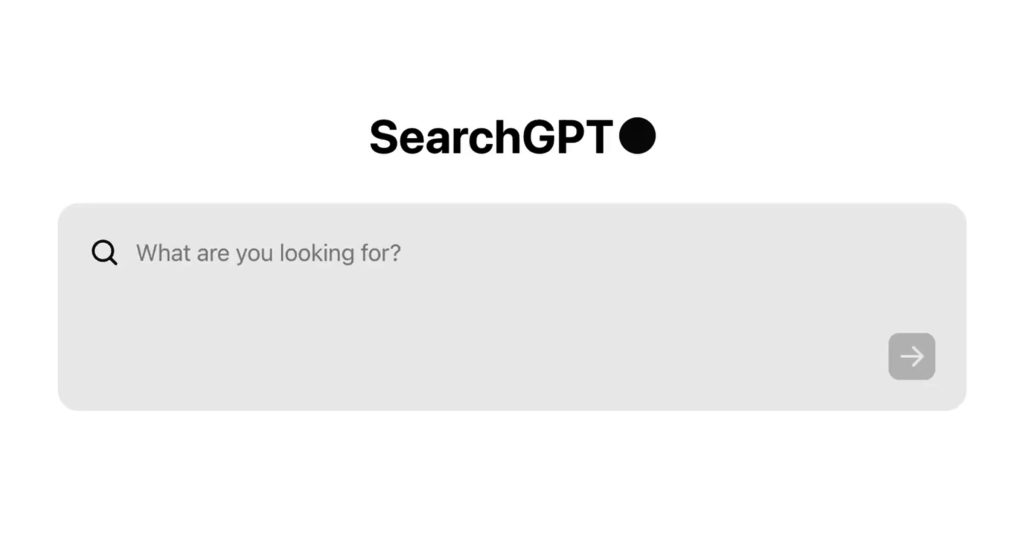Disclaimer: Unless otherwise stated opinions expressed below belong solely to the author.
The moment dreaded by everybody at Alphabet has finally come: OpenAI has announced its own, AI-powered search engine to rival Google (and others, that most of us don’t know anyway).
Unsurprisingly, the company is careful to underscore that it’s just a prototype, whose early release will be available to just 10,000 people who join the waitlist. After all, when Google itself launched AI features in its search, it didn’t go well, with Gemini bot advising users to e.g. put glue on a pizza.
The launch didn’t go without a hitch for OpenAI either, as some eagled-eyed observes were keen to point out — it provided the wrong dates for a festival in its demo video:

To make matters worse, the dates it provided were the period where the festival’s box office was officially closed. Not the best time to make any plans, as you can see.
Still, this is a relatively minor hiccup, which could be rectified with website data being structured more logically for a bot to comprehend.
We have yet to see how badly SearchGPT will hallucinate and whether it makes any shocking, ridiculous, or comical recommendations to users. It only has one chance to convince us it’s better than what competitors have thus far created.
Web search is ripe for a shake-up
OpenAI’s announcement comes on the heels of the introduction of an AI-centric search layout in Bing, which also relies on ChatGPT and other underlying technologies developed by Sam Altman’s company.
It’s as if he tried to steal some of the limelight from his biggest investor, showing that he’s not afraid of going alone, despite Microsoft’s hefty stake in his business.
However, Bing’s AI features are already accessible, while SearchGPT is yet to open to its first users. But perhaps being slow and steady is going to win this race.
Altman’s caution shows that he understands just how important doing search right will be for OpenAI. It’s the first new entrant in decades that can realistically disrupt Google’s web search monopoly (currently 91 percent of the global search engine market), which is the bedrock of Alphabet’s financial success.

At nearly 60 per cent of the company’s revenue, the search advertising business is worth a staggering US$175 billion per year.
That is an enormous sum of money that companies like OpenAI will be eager to have a share in, given their massive expenses which cannot be sustainably funded into the future without a service that brings real money.
On the other hand, it’s clear that Google’s monopolistic position has led it to rest on its laurels, failing to provide meaningful innovation or even successfully combat spam and abuse in search results.
Given that Microsoft’s Bing relies on a similar approach and technology, it’s perhaps better for all of us that a completely new company does it from a different angle altogether.
After all, that’s how Google disrupted the business when it launched in 1998 with nothing but a single field you’d enter your question into, at a time when giants like Yahoo merely added search as an afterthought to the content they published.
A new take, new layout, new user experience of searching the web could revolutionise the way we look for information on the internet, if done successfully.

Separate from ChatGPT – for now
Possibly to shield its flagship AI bot, ChatGPT, from controversy, the company is testing SearchGPT on the side but it did say it plans to ultimately integrate both.
Understandably, its approach is conversational, envisioning users asking questions in a fairly natural language and then following up with more, to refine the results as needed, much like you would using ChatGPT.
This is different from the long list of results we know from Google, including its AI-powered suggestions, appearing in a separate box above but limited in the interaction they offer.
It’s clear that Google is still trying to grapple with possible consequences of AI revolution in its core business, which relies on showing plenty of ads next to search results.
OpenAI, on the other hand, can start with a clean slate, burdened neither by legacy technologies nor dependency on advertising revenue. Instead, it can refine the user experience first, before figuring out how to make money from its new service.
It’s hard to say what the winning configuration is going to look like but I think we can all agree that getting an accurate answer without having to browse a dozen pages of links is preferable.
This is the vision that sets the direction for all competing companies.










